Lesson Twenty-Six
Dialogue twenty-six: Questions, questions, questions
👆 With your helper prepare full answers to these common questions. You should memorise your answers. Make them longer as your fluency increases.
tu du kum zaay ye? Where are you from? | تۀ د کُوم ځائ يې؟ |
tu du kum mUlk na raaghulay ye? What country have you come from? | تۀ د کُوم ملک نه راغلے يې؟ |
Answer: | |
tu dălta tsu kawe? What do you do here? | تۀ دلته څۀ کوې؟ |
Answer: | |
staa pu paakistaan ke tsomra [tsona] kaala kégee? How many years have you been in Pakistan? | ستا په پاکِستان کښې څومره کاله کېږى؟ |
Answer: | |
staa tankháa tsomra da? What is your pay? | ستا تنخا څومره ده؟ |
Answer: | |
tu maa khpul mUlk ta botláy she? Can you take me to your country? | تۀ ما خپل ملک ته بوتلے شې؟ |
Answer: | |
tu mUsulmáan shíway ye? Have you become a Muslim? | تۀ مُسلمان شوے يې؟ |
Answer: | |
tu wăle mUsalmaan nu joRége? Why don't you become a Muslim? | تۀ ولې مُسلمان نۀ جوړېږې؟ |
Answer: | |
tu dălta wăle raaghulay ye? Why did you come here? | تۀ دلته ولې راغلے يې؟ |
Answer: | |
tu ba tur kala pore dălta ye? How long will you stay here? | تۀ به تر کله پورې دلته يې؟ |
Answer: | |
shaa da zaay khwakh day? Do you like this place? | ستا دا ځائ خوښ دے؟ |
Answer: | |
zmoong pu mUlk ke staa tsu khwakh shoo? What did you like in our country? | زمُونږ په ملک کښې ستا څۀ خوښ شُو؟ |
Answer: | |
staa pu mUlk ke hum daase garmée shta? Is it as hot as this in your country? | ستا په ملک کښې هم داسې ګرمى شته؟ |
Answer: | |
This week listen very carefully to any other questions you are asked. Write them down or record them and transcribe them here. Learn to answer them too.
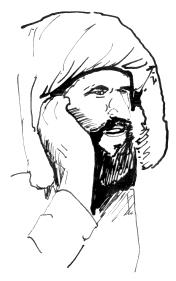
'should have’: The subjunctive mood in the past tense
There are several ways to indicate “should” or “ought”
- Using a past participle and the past tense hypothetical form of the equative “be” verb, وے - way to communicate the idea of necessity, possibility and repsonsibility.
| zaroorée nu wa che payse ye wăr-ta legúle way. | It wasn't necessary to have sent them money. | ضرُورى نۀ وه چې پیسې يې ورته لېږلې وے. |
| pukaar dee che haghwée oos dălta raa-rasedúlee way. | They should have arrived here by now. | پکار دى چې هغوى اوس دلته را رسېدلی وے. |
| pukaar dee che tu ye weeshtay way, kho oo-ye [we`e] nu weeshte. | They should have shot you, but they didn't shoot you. | پکار دى چې تۀ يې ويشتے وے، خو ویې نۀ ويشتې. |
| haghú ghokhtúl che dălta paate shíway way, kho majbóor wo, no láaRo. | He wanted to stay here, but was compelled, so he went. | هغۀ غوښتل چې دلته پاتې شوے وے خو مجبُور وو، نو لاړو. |
| ku tu túlay way, no zu ba hum túlay wum. | If you had gone, I would have gone too. | کۀ تۀ تلے وے، نو زۀ به هم تلے وم. |
| ku paróon mosúm khu way, no zu ba khpul kor ta raaghulay wum. | If the weather had been good yesterday, I would have come to my house. | کۀ پرُون موسم ښۀ وے، نو زۀ به خپل کور ته راغلے وم. |
| ku khUdáay haghú ta shifáa wărkúRay way, no haghá ba oos jzwundáy way. | If God had healed him, he would have been alive now. | کۀ خُدائ هغۀ ته شفا ورکړے وے، نو هغه به اوس ژوندے وے. |
| ku taa maa ta wayulee way che tu túgay ye, no maa ba taa la oobú dăr-kúRe we. | If you had told me you were thirsty, I would have given you some water. (m.) | کۀ تا ما ته وئيلی وے چې تۀ تږے يې، نو ما به تاله اوبۀ درکړې وې. |
| ku maa haghá wahúlay way, no haghá ba khog shúway wo. | If I would have hit him, he would have been hurt. (m.) | کۀ ما هغه وهلے وے، نو هغه به خوږ شوے وو. |
| ku daa kaasá maata shíway way, no zmaa mor ba khufa shíwe wa. | If this bowl had been broken my mother would have been upset. | کۀ دا کاسه ماته شوے وے، نو زما مور به خفه شوې وه. |
| ku tu nu way raaghulay, no maa ba taa ta nu woo wayulee. | If you had not come, I wouldn't have told you. (m.) | کۀ تۀ نۀ وے راغلے، نو ما به تا ته نۀ وُو وئيلى. |
| pukáar woo che payse ye tre akhíste way aw wăr-ta ye wăr-kúRe way. | He should have taken the money and given it to him. | پکار وُو چې پیسې يې ترې اخستې وے او ورته يې ورکړے وے. |
- Using the past perfect with the particle به - ba to indicate blame, regret, or failure.
| tu ba raaghúlay we! | You should have come! | تۀ به راغلے وې! |
| moong ba haghá leedúle wa. | We should have seen her. | مُونږ به هغه ليدلې وه. |
| moong ba haghwée leedúlee woo. | We might have seen them. | مُونږ به هغوى ليدلى وُو. |
| zu ba halta túlay wum, kho tlay nu shwum. | I might have gone there, but I couldn't go. | زۀ به هلته تلے وم، خو تلے نۀ شوم. |
- Using پکار دے - pukáar day (it's necessary/needed), شاید چې - shaayid che, ممکن - mUmkín (possible), خیال - khyaal (thought), and کېدے شی چې - kedáy shee che (it's could be that) to indicate a past possibility. That is, something that might have happened in the past.
| zmaa pu khyaal haghá túlay wo. | I think he may have gone. | زما په خيال هغه تلے وو. |
| shaayid che haghwée zu leedúlay wum. | Perhaps they might have seen me. | شايد چې هغوى زۀ ليدلے وم. |
| mUmkína wa che haghé kaar shUroo kúRay way ku haghá dălta way. | She might have started work by now if she had been here. | ممکنه وه چې هغې کار شروع کړے وے کۀ هغه دلته وے. |
| kedáy shee che khpul kitáab ye her kúRay wo. | It is possible that he had forgotten his book. | کېدے شى چې خپل کتاب يې هېر کړے وو. |
| zmaa khyaal wo che haghá ba túlay way. | I thought he would have been gone. | زما خيال وو چې هغه به تلے وى. |
| moong la hágha wakht du haghwée madúd kawúl pukaar woo. | We should have assisted them at that time. | مُونږ له هغه وخت د هغوى مدد کول پکار وو. |
| haghú la koshis kawul pukáar woo kho haghá fayl sho. | He should have tried, but he failed. | هغۀ له کوشش کول پکار وُو خو هغه فيل شو. |
| maa la pukáar woo che khpul pukhto sabúq ke me mihnút kúRay way. | I should have been more diligent in my Pukhto studies. | ماله پکار وُو چې خپل پښتو سبق کښې مې مِحنت کړے وے. |
| kedáy shee ze halta makhke túlay wum. | I might have gone there earlier. | کېدے شى زۀ هلته مخکښې تلے وم. |
| moong la haghá leedúl pukáar woo. | We should have seen them. | مُونږ له هغه ليدل پکار وو. |
Expressing an unfulfilled desire
| zmaa pu angrezúy zda kawúlo ke dilchaspee da, kho zmaa sara wakht níshta. | I have an interest to learn English, but I don't have the time. | زما په انګرېزۍ زده کولو کښې دلچسپى ده، خو زما سره وخت نشته. |
| pukáar day che nun yo khu khabúr raaghúlay way. | I wish some good news would have come today! | پکار دے چې نن يو ښۀ خبر راغلے وے! |
| zmaa daa Uméed wo che halúk ba óoshee, kho jeenúy óoshwa. | I had hoped a boy would have been born, but it was a girl. | زما دا اُميد وو چې هلک به وشى، خو جينۍ وشوه. |
| paróon maa laambúl ghokhtúl. | I wanted to bathe yesterday. | پرُون ما لامبل غوښتل. |
| maa ghokhtúl che zu kúlee ta laaR shum, kho zmaa afsúr maa ta du chooTúy ijaazút raa-nu-kRo. | I wanted to go to the village, but my boss wouldn't give me permission for leave. | ما غوښتل چې زۀ کلى ته لاړ شم، خو زما افسر ما ته د چُټۍ اجازت رانۀ کړو. |
Expressing something that is doubtful or contrary to fact
The following phrases provide useful ways in which to communicate expressions of “if only” or 'would have’:
- Intransitive
| ku maa ta páta way ... | If I had known ... | کۀ ما ته پته وے ... |
| ku taa ta páta way ... | If you had known ... | کۀ تا ته پته وے ... |
{" "}
| zu ba túlay wum. | I would have gone. | زۀ به تلے وم. |
| moong ba túlee woo. | We would have gone. | مُونږ به تلى وُو. |
| baséer ba túlay wo. | Basir would have gone. | بصير به تلے وو. |
| zaahída ba túle wa. | Zahida would have gone. | زاهده به تلې وه. |
- Transitive
| ku maa taa tu wayulee way ... | If I had told you ... | کۀ ما تا ته وئيلی وے ... |
| ku taa maa ta wayulee way ... | If you had told me ... | کۀ تا ما ته وئيلی وے ... |
{" "}
| maa ba haghá wahúlay wo. | I would have hit him. | ما به هغه وهلے وو. |
| moong ba haghá wahúlay wo. | We would have hit him. | مُونږ به هغه وهلے وو. |
| haghú ba zu wahúlay wum. | He would have hit me. | هغۀ به زۀ وهلے وم. |
| hagha ba wahúlay shíway wo. | He would have been hit. | هغه به وهلے شوے وو. |
| ku ahmád ye wahúlay wo | If he had hit Ahmad ... | کۀ احمد يې وهلے وو ... |
| ku DoDúy pakhá shíwe wa ... | If the bread had been cooked ... | کۀ ډوډۍ پخه شوې وه ... |
The all purpose چې - che (who, whom, that, which)
| tsok che Der kaar kawee Déra DoDúy khoree. | The one who works a lot eats a lot of food. | څوک چې ډېر کار کوى ډېره ډوډۍ خورى. |
| tsok ke dălta oségee, du haghú khe jzwund wee. | He who lives here has a good life. | څوک چې دلته اوسېږى، د هغۀ ښۀ ژوند وى. |
| tsok che khu oodú kégee, haghá khu kaar hum kawúlay shee. | The person who sleeps well is also able to work well. | څوک چې ښۀ اُودۀ کېږى هغه ښۀ کار هم کولے شى. |
| hágha saRáy che chaa sara payse zyaate we, oos peerpaa`ee ke day. | The person who had a lot of money is now in Pirpai. | هغه سړے چې چا سره پیسې زياتې وې اوس پيرپائى کښې دے. |
| chaa che haghú sara khabúre kúRe dee, haghá khu pejzunee. | Anyone who has talked with him knows him well. | چا چې هغۀ سره خبرې کړې دى، هغه ښۀ پېژنى. |
| hágha halúk ta aawáaz ka, chaa che speen koT achawúlay day. | Call the boy who has put on the white coat. | هغه هلک ته آواز که [کړه] چا چې سپين کوټ اچولے دے. |
| hágha kasáan chaa ta che de kor zaroorút day, taa ta kamrá ke naast dee. | Those people who are in need of a house are waiting for you in the room. | هغه کسان چا ته چې د کور ضرُورت دے، تا ته کمره کښې ناست دى. |
| hágha khúza che taa paróon leedúle wa, haghá Randá wa. | The woman whom you had seen yesterday was blind. | هغه ښځه چې تا پرُون ليدلې وه، هغه ړنده وه. |
| zu hágha DakTúr la zum, che Dera kha dawaa`ee wăr-kawee. | I am going to that doctor who gives very good medicine. | زۀ هغه ډاکټر له ځم چې ډېره ښه دوائى ورکوى. |
| hágha shay che taa akhístay wo, zu ba ye hum ákhlum. | That thing which you have bought, I will also buy. | هغه شے چې تا اخستے وو، زۀ به يې هم اخلم. |
| che staa tsu shay pukáar day, haghá dălta níshta. | That thing which you want isn't here. | چې ستا څۀ شے پکار دے، هغه دلته نشته. |
| hágha kaar che taa kúRay day, Der zarooree day. | The work which you have done is very important. | هغه کار چې تا کړے دے، هغه ډېر ضرُورى دے. |
| che kúma ToTa taa akhíste da, haghá Déra gráana da. | The piece of cloth which you have bought is very expensive. | چې کُومه ټوټه تا اخستې ده، هغه ډېره ګرانه ده. |
| haghá pin che staa khwakh day, haghá maa sara oos níshta. | The pen which you like, I don't have now. | هغه پن چې ستا خوښ دے، هغه ما سره اوس نشته. |
| kum zaar che haghá túle da, zu wăr-ta nu yum túlay. | The place to which she has gone, I haven't gone to. (m. speaker) | کُوم ځائ ته چې هغه تلې ده، زۀ ورته نۀ يم تلے. |
| kum zaak ke che haghá osee, halta mosúm Der yukh wee. | The place where she lives has very cold weather. | کُوم ځاى کښې چې هغه اوسى، هلته موسم ډېر يخ وى. |
| chărta che zu osum, haghá zaay du khaar na lúre day. | The place where I live is a long way from the city. | چرته چې زۀ اوسم، هغه ځائ د ښار نه لرې دے. |
The word چې - che can be used by itself or in combination with other words, such as څوک - tsok (who), چا - chaa (whom / inflected 'who'), چرته - chărta (where) etc.
- چې - che often links to clauses in a sentence. For example.
{" "}
| che zu dăraaghlum, taa tsu kawul? | When I came to you, what were you doing? | چې زۀ دراغلم، تا څۀ کول؟ |
| che tu raaghle, maa roTúy khoRúla. | When you arrived, I was eating food. | چې تۀ راغلې ما روټۍ خوړله. |
- The same kind of linking may also be done by خو - kho, نو - no, بیا - byaa, and او - aw.
| haghá ráaghay aw oodú sho. | He came and went to sleep. | هغه راغے او اُودۀ شو. |
| haghá ráaghay, kho oodú nu sho. | He came, but didn't go to sleep. | هغه راغے، خو اُودۀ نۀ شو. |
| ku haghá raaghúlay way, no byaa ba oodú shíway wo. | If he had come, then he would have gone to sleep. | کۀ هغه راغلے وے، نو بيا به اُودۀ شوے وو. |
| yaa kho raaghúlay day, aw yaa oodú shíway day. | Either he has come, or he has gone to sleep. | يا خو راغلے دے، او يا اُودۀ شوے دے. |
| raatlo no pas, haghá oodú sho. | After coming, he went to sleep. | راتلو نه پس، هغه اُودۀ شو. |
| che haghá kála ráaghay, no oodú sho. | When he came he went to sleep. | چې هغه کله راغے، نو اُودۀ شو. |
The conjunction چې - che
چې - che is an all purpose conjunction used to mark the transition between ideas in Pukhto. It is used in two main ways.
- چې - che as a simple conjunction
By itself چې - che means 'that’, 'when’, 'if’, and 'in order that’, and is used to introduce a dependent clause.
{" "}
| che laila raazée no moong ba hayráan shoo. | We will be surprised if Laila comes. | چې ليلیٰ راځى نو مُونږ به حيران شُو. |
You will note that the dependent clause چې لیلیٰ راځی - che laila raazée comes before the main clause. This is a common occurrence in Pukhto.
{" "}
چې - che is also used to introduce reported speech, commands or questions. For example,{" "}
| Umar ghani says that Laila will definitely come. | Umar ghanee waayee che laila ba khaamakháa raadzée. | عمرغنى وائى چې ليلیٰ به خامخا راځى. |
- چې - che in combination with other words.
{" "}
چې - che is used in combination with other words, particularly adverbs. Here are a few of the more common uses:{" "}
| hăr kala che | whenever | هر کله چې |
| kúma (wraz) che | whatever (day), whichever (day) | کُومه (ورځ) چې |
| tu tso pore che | as long as, until | تر څو پورې چې |
| lúka che | as if, like | لکه چې |
| be du de na che | unless | بې د دې نه چې |
| tsoomra che | however much | څومره چې |
| wăle che | because | ولې چې |
| zúka che | since, because | ځکه چې |
👆 Make sentences using چې - che in these ways and practice using them with your helper.
The prefix هر - hăr (ever-, any-)
| hăr tsok che dălta raazée, kitáab ákhlee. | Everybody who comes here buys a book. | هر څوک چې دلته راځى، کتاب اخلى. |
| hăr tsu che staa pukáar dee, dălta shta. | Everything that you need is present. | هر څۀ چې ستا پکار دى، دلته شته. |
| che tu hăr chărta tlul ghwaaRe, halta laaR sha. | Wherever you want to go, go there. | چې تۀ هر چرته تلل غواړې هلته لاړ شه. |
| hăr chărta mu za! / hăr khwaa mú za! | Don't go everywhere! | هر چرته مۀ ځه! / هر خواه مۀ ځه! |
| de ke hăr tsu che tu akhistul ghwaaRe waakhla. | Take anything in it which you want to buy. | دې کښې هر څۀ چې تۀ اخستل غواړې واخله. |
| hăr shay mu khora! | Don't eat everything! | هر شے مۀ خوره! |
| hăr yo kum cho staa khwakh wee, zaan sara raawula! | Bring with you everything you like! | هر يو کُوم چې ستا خوښ وى ځان سره راوله! |
| hăr shay kum che de ke nu day khu, kharts ye ka! | Everything in it which is not good, sell it! | هر شے کُوم چې دې کښې نۀ دے ښۀ، خرڅ يې که! |
| hăr kala che raatláy she, ráasha! | Whenever you can come, come! | هر کله چې راتلے شې، راشه! |
Improving fluency in the tenses
👆 You’ve probably realized by now that the fluent use of verbs in the past tense is one of the biggest challenges in learning Pukhto. The following five pages have lists of commonly used verbs, the basic tenses, and various pictures of people and objects. Each page can be used as a drill that involves pointing at pictures to make sentences in different tenses. This has the advantage of moving straight into Pukhto and not using translation from English to Pukhto. You may need to show your helper how to do this kind of drill.
The people grouped on each page can be used to represent first, second, and third persons, singular and plural, masculine and feminine.
Drills:
- Sentences with confusinc word order Get your helper to make sentences using one verb, working through it tense by tense. Point to the combination of people and tense that you want to use to make a sentence..
For example, using the verb پوهېدل - pohedúl (to understand): Point to a picture representing زه - zu (yourself) and then to one of the illustrations that represent the masculine singular tense, and lastly to the verb, “to understand’. The sentence you would say in the present tense (in Pukhto) would be 'I understand him’. You can then work through the same process, still in the same tense with masculine plural, feminine singular and feminine plural. You can then reverse the whole thing – for example, 'He understands me” – and methodically go through all the possibilities in the same tense: That is, 'You understand him’, 'She understands them’, etc.
When you think you grasp the use of a verb in one tense, get your helper to point to people and other verb tense combinations for you to try to produce sentences. With each verb progress down the tenses; have your helper say the sentences each time before you produce them.
Using animals (in feminine singular, and plural and masculine singular and plural) as objects of sentences, and people as the subjects. For example, 'He milked a buffalo’. However, some sentences only make sense if people are the objects. For example, 'The donkey bit the ladies’, etc.
Objects of different gender, for example, 'She bought two pots’. You can complicate it further by pointing back to a person, and saying, 'He bought a candle for her’, etc.
Intransitive verbs. Your helper can add any other words or phrases. Do not try and learn any new vocabulary here, but concentrate on the verbs and their uses.
Transitive verbs. Again supply words that fit each sentence.
Drill one:
Tenses
- Present
- Imperative
- Future
- Past
- Past progressive
- Habitual past
- Present perfect
- Past perfect
- Subjuctive
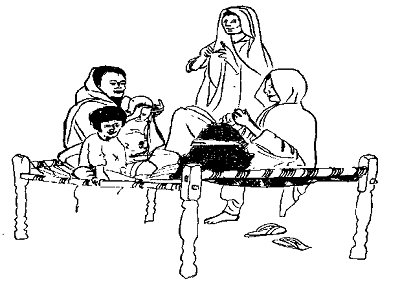
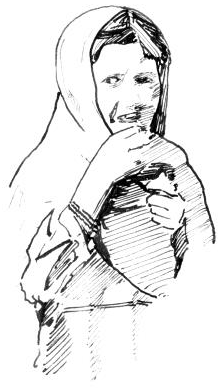
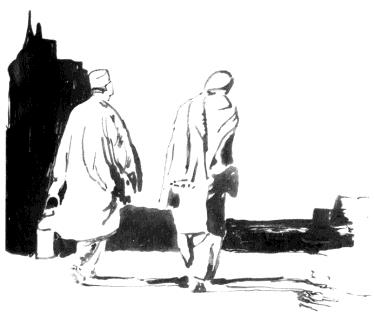
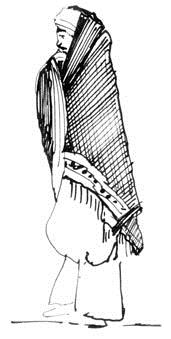
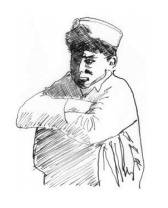
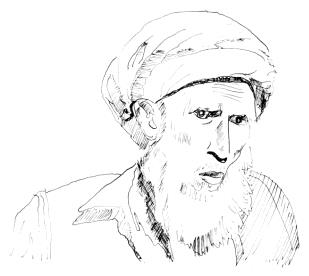
Verbs
| pohedúl | to know (understand) | پوهېدل |
| pejzandúl | to know (recognise) | پېژندل |
| wăr-kawul | to give | ورکول |
| akhistúl | to buy, to get, to take | اخستل |
| tapos kawul | to ask | تپوس کول |
| wayul | to say | وئيل |
| khabúre kawul | to talk | خبرې کول |
| raatlúl | to come | راتلل |
| tlul | to go | تلل |
Drill Two
Tenses
- Present
- Imperative
- Future
- Past
- Past progressive
- Habitual past
- Present perfect
- Past perfect
- Subjuctive
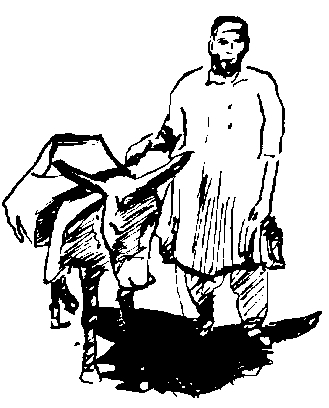
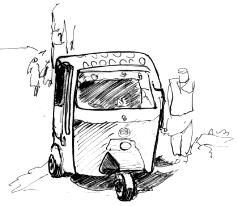
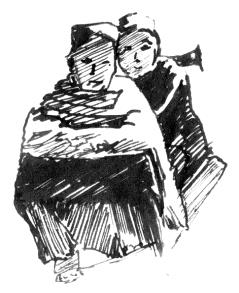
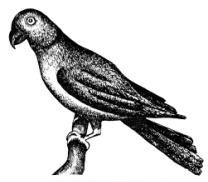

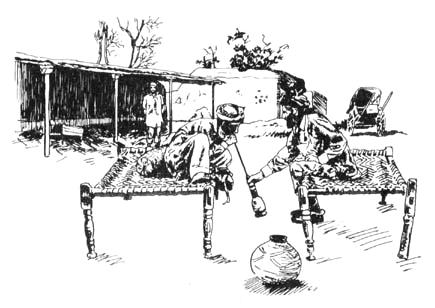
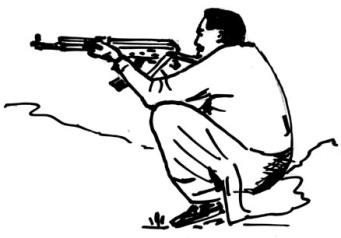

Verbs
| weeshtúl | to shoot | ويشتل |
| muR kawul | to kill | مړ کول |
| katúl | to look at | کتل |
| cheechúl | to bite (sting) | چيچل |
| wahúl | to hit | وهل |
| osedúl | to live, to stay | اوسېدل |
| neewúl | to hold | نيول |
| deeka wăr-kawul | to push | ديکه ورکول |
Drill Three
Tenses
- Present
- Imperative
- Future
- Past
- Past progressive
- Habitual past
- Present perfect
- Past perfect
- Subjuctive

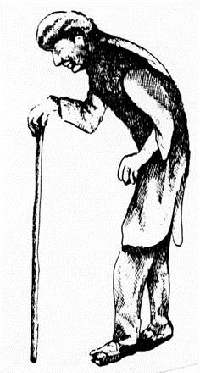
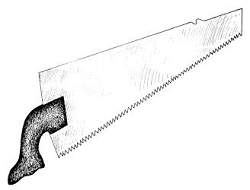
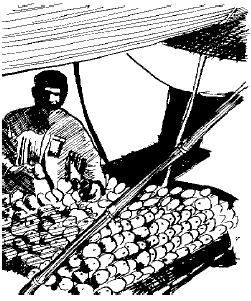
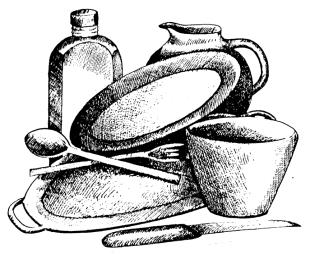
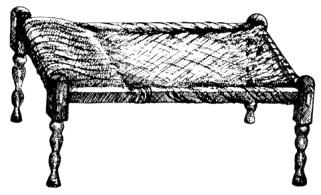
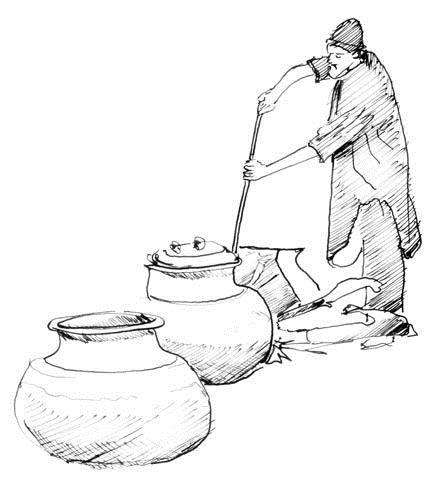
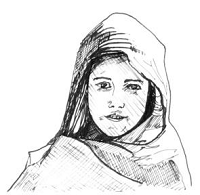
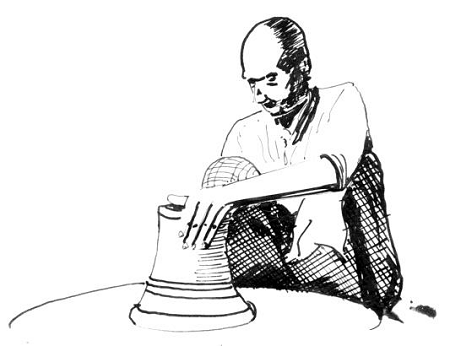
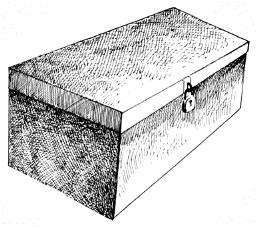
| qarz wăr-kawul | to lend | قرض ورکول |
| maatawúl | to break | ماتول |
| raa-kawul | to give me | راکول |
| moondúl | to find out | مُوندل |
| akhistúl | to buy | اخستل |
| khatsawúl | to sell | خرڅول |
| weendlúz | to wash | وينځل |
| sumawúl | to mend | سمول |
| joRawúl | to make | جوړول |
Drill four
Tenses
- Present
- Imperative
- Future
- Past
- Past progressive
- Habitual past
- Present perfect
- Past perfect
- Subjuctive

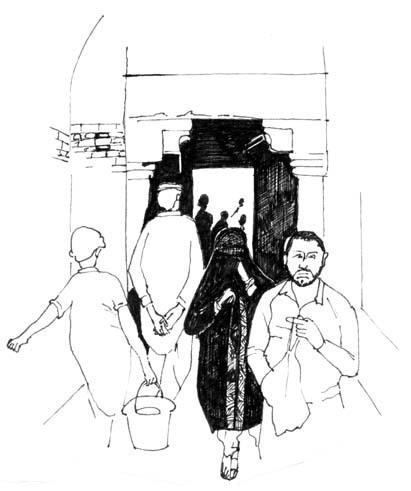
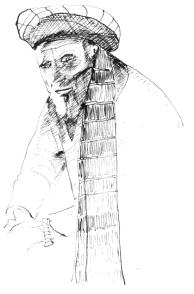
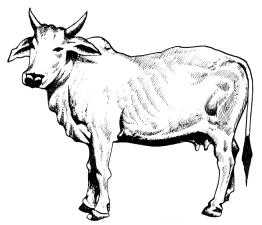
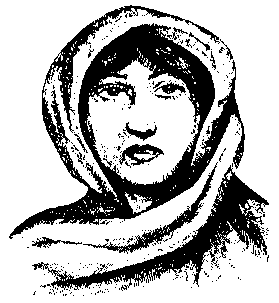

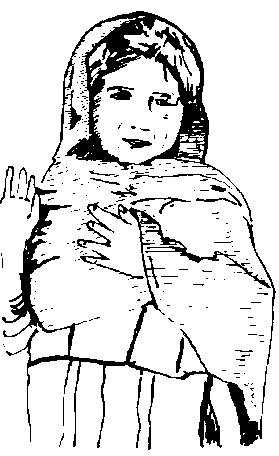
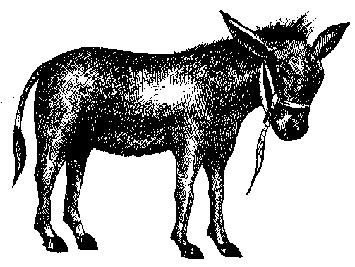
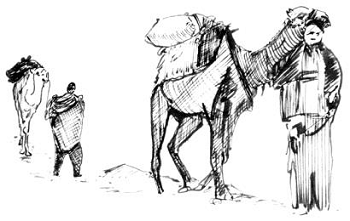
Verbs
| waadú kedúl | to become married | وادۀ کېدل |
| ghÚsa kedúl | to become angry | غُصه کېدل |
| yăredúl | to fear | يرېدل |
| raawatúl | to come out | راوتل |
| kenaastúl | to sit | کښېناستل |
| tlul | to go | تلل |
| muR kedúl | to die | مړ کېدل |
| paate kedúl | to stay | پاتې کېدل |
| taawedúl | to turn | تاوېدل |
| stúRay kedúl | to become tired | ستړے کېدل |
Drill five
👆 Use the same tenses as before; the verbs are on the following page.
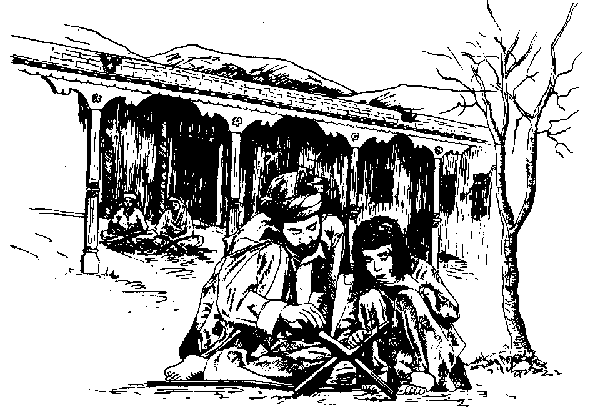

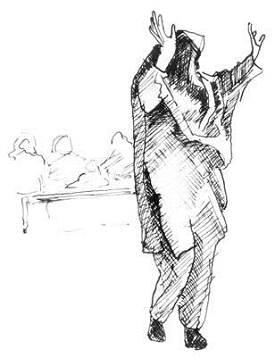
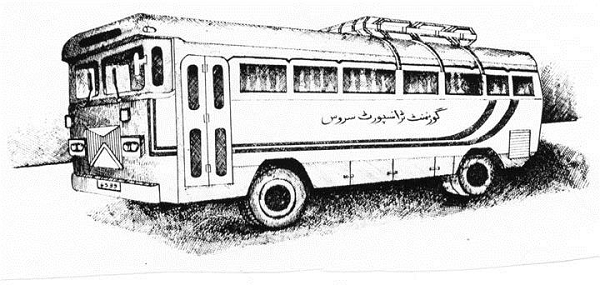
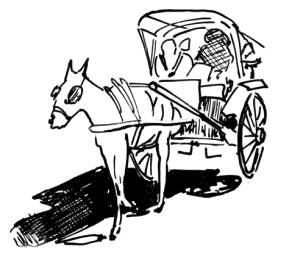

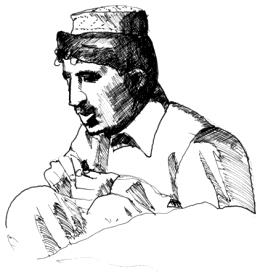
Verbs
| shlawúl | to tear (rip) | شلول |
| legúl | to send | لېږل |
| paakawúl | to clean | پاکول |
| lúre kawúl | to extract/remove | لرې کول |
| moondúl | to find | مُوندل |
| maaloomawúl | to find out | معلُومول |
| khoRúl | to eat | خوړل |
| laambúl | to bathe | لامبل |
| oRúl | to carry | وړل |
| akhistúl | to take | اخستل |
| shor kawúl | to make noise | شور کول |
| raawRúl | to bring | راوړل |
| taawawúl | to spin | تاؤول |
| pakhawúl | to cook | پخول |
| puTawúl | to hide | پټول |
| istimaalawúl | to use | اِستعمالول |
| waadú kawúl | to marry | وادۀ کول |
| bandawúl | to close | بندول |
| gaTúl | to gain/earn | ګټل |
| haasilawúl | to obtain | حاصلول |
| taqseemawúl | to divide | تقسيمول |
| jáma kawúl | to collect | جمع کول |
| ooRú kawúl | to powder | وړۀ کول |
| neewúl | to catch | نيول |
| sambaalawúl | to dress | سمبالول |
| kekhodúl | to put | کېښودل |
| awredúl | to hear | اورېدل |
| skul | to drink | څښل |
| leekúl | to write | ليکل |
| botlúl | to carry | بوتلل |
| prekhodúl | to quit | پرېښودل |
| shareekawúl | to share | شريکول |
| rebúl | to reap | رېبل |
| jang kawúl | to fight | جنګ کول |
| wahúl Takawúl | to beat | وهل ټکول |
| tsaTúl | to lick | څټل |
| shmaarúl | to count | شمارل |
| chakúr wahúl | to take a trip | چکر وهل |
| kawúl | to do | کول |
| tukhtawúl | to kidnap | تښتول |
| buch kawúl | to save (rescue) | بچ کول |
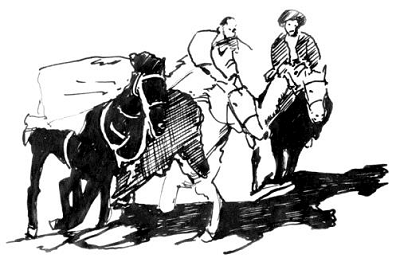
Comprehension drill: Speed counting
Ask and answer quick questions using mental arithmetic. For example:
| dwa jáma dre jama tsalór tso shwe? | دوه جمعه درې جمعه څلور څو شوې؟ |
| dre zúla shpug tsóomra wee? | درې ځله شپږ څومره وى؟ |
| che dólus pu dre kasáano taqséem ke, tsóomra yo kas to rásee? | چې دولس په درېو کسانو تقسيم کړې، څومره يو کس ته رسى؟ |
| che du shpug na dre lúre kRe, no tso paate shoo? | چې د شپږو نه درې لرې کړې، نو څو پاتې شو؟ |